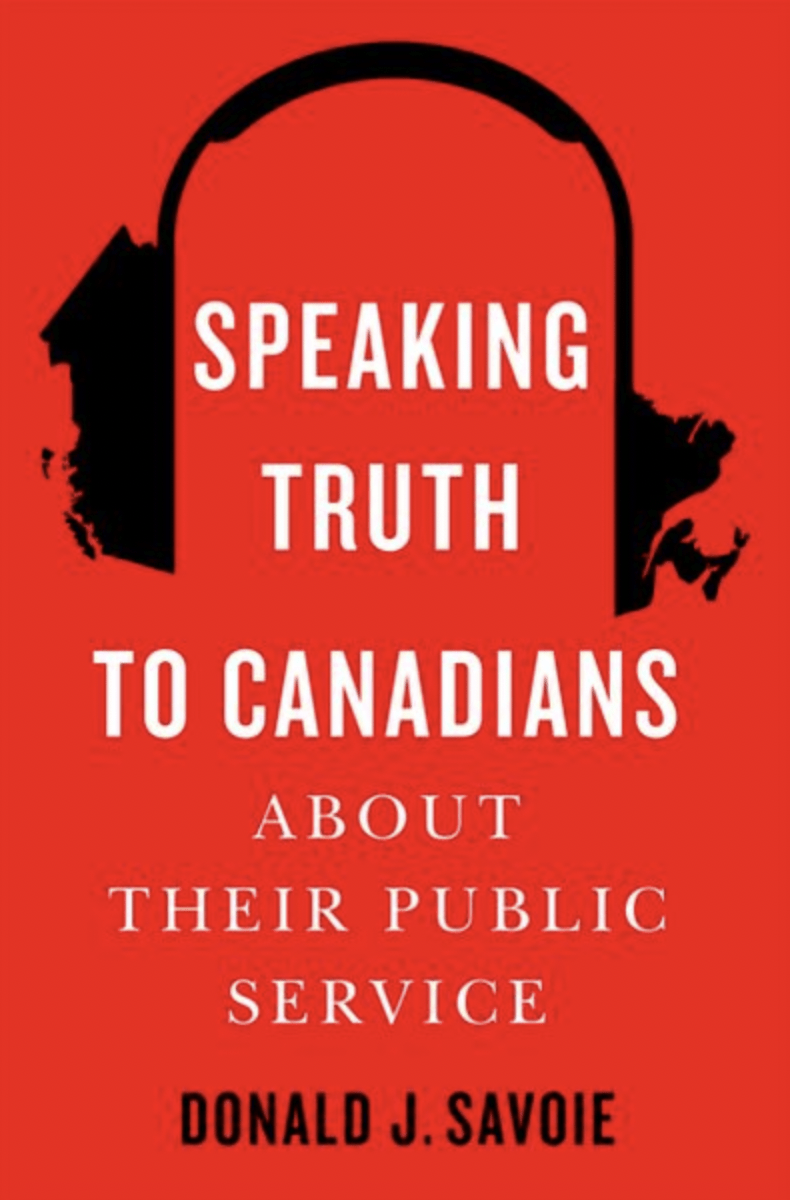An Indispensable First Step: Donald Savoie’s Roadmap for Public Service Reform

Speaking Truth to Canadians About Their Public Service
By Donald Savoie
McGill-Queen’s University Press
Reviewed by Colin Robertson
October 16, 2024
If Donald Savoie is right, and he presents a compelling case in Speaking Truth to Canadians About Their Public Service, our federal public service is in need of both a rethink and reform. As Savoie writes, it is less visible and less personal than it once was, and its service standards are not what Canadians expect or deserve.
A Companion of the Order of Canada, Savoie is one of our most distinguished scholars, currently holding the Canada Research Chair in Public Administration and Governance at the Université de Moncton. A prolific author on Canadian public policy, he has also held various senior appointments within governments giving him hands-on knowledge and experience about what he writes.
Having looked, in his previous books, at the growing centralization of power in the office of the prime minister and at regional grievances, Savoie’s new book is a forensic evaluation of the federal public service.
A half-century ago, it was both visibly public and demonstrated a commitment to service. Considered among the world’s best, Canada’s federal public service and the programs it administered, Savoie writes, helped lift his fellow Acadians out of poverty.
Where once the civil service was predominately anglophone and male, today it is more diverse. Gender parity was achieved over a decade ago with women now occupying 51.1 percent of senior positions.
It is also bigger. Since Justin Trudeau took office, the civil service has added 119,000 to its ranks, growing from 257,034 in 2015 to 367,773 in 2024.
Despite progress in diversity, gender parity, pay, pensions and working conditions as well as a lot more staff, recent surveys of the public service say bureaucrats suffer from poor morale and take more sick leave than ever. They don’t trust their political masters and the politicians don’t much trust them. That’s a problem, writes Savoie, as, “trust is the foundation upon which the legitimacy of democratic institutions rests.”
The public, meanwhile, is fed up with both politicians and public service. Canadians, writes Savoie, “believe that there is a double standard at play, one for the public sector and another for all the other sectors.”
For Savoie, the effort to instill private sector habits into the civil service was both misguided and has further undermined civil service virtues.
The organizational-culture cri de coeur of “letting managers manage” runs counter to ministerial accountability. As Savoie told me in our Global Exchange podcast discussion, ‘letting the manager manage’ is inconceivable in government because of accountability restraints imposed by Parliament and government. “We’ve made it much more difficult for senior managers to manage.”
Savoie also writes that the balance between operations and policy has been upended. He calls those who analyze and propose policy the ‘poets’ and says they have supplanted the ‘plumbers’ who actually deliver and administer government services, such as processing passports, visas and veterans’ benefits.
The poets, increasingly centralized in the national capital region, are now the vast majority and occupy almost all senior positions. They serve ministers and the prime minister although trust between the political level and public servants has eroded in recent decades, particularly under Conservative governments.
Savoie says that despite various efforts at modernization, including the formulation of at least three new vision statements, Canadians rank the public service only slightly higher in trustworthiness than their political masters.
Savoie also criticizes the centralization of power, saying decision-making is often delegated up to the prime minister. How, asks Savoie, can a prime minister in a country of 41 million be expected to make all the decisions?
Can we fix the public service? Savoie says that change and reform can occur only with the personal attention of the prime minister as head of government, and of the Clerk of the Privy Council, who also serves as Secretary to Cabinet and Head of the Public Service.
They must direct reform, but it will also take a culture change in attitudes towards the concept of public service, says Savoie. It requires a necessary ‘wrench of the wheel’ to combat the strong forces favouring inertia and the status quo.
We are alone among G7 countries not to have our civil service back to work five days a week post-pandemic. Foreign diplomats regularly complain how hard it is to get appointments or calls answered. Ministers preach about the need for the business sector to improve its productivity; they should start with improvements in their own departments.
When pressed after Labour Day into returning to the office for three days a week, civil service unions protested the impact on their “work-life balance”. In retaliation, they told their members not to buy anything from downtown merchants, many of whom are still recovering from the pandemic and convoy occupation.
It’s small consolation but Savoie told me Canada is not the only nation facing public service challenges. “Look at the United States,” he said in our interview. “Some of the politicians are calling public service a ‘deep state’, and they want to deconstruct. I think that’s sheer folly”. He also listed public service challenges in France, the UK and Korea.
For much of our history, the federal public service was a prized and valued profession – a high calling. More than just a job, it was a vocation. Civil servants are the grease and glue to a well-functioning democracy. We need to get it back. Donald Savoie provides us with a trenchant evaluation, the necessary first step to necessary reform.
Speaking Truth to Canadians About Their Public Service should be read by any of us interested in our federal public service and especially those looking to form the next government.
Policy Contributing Writer Colin Robertson, a former career diplomat, is a fellow and host of the Global Exchange podcast with the Canadian Global Affairs Institute in Ottawa.
